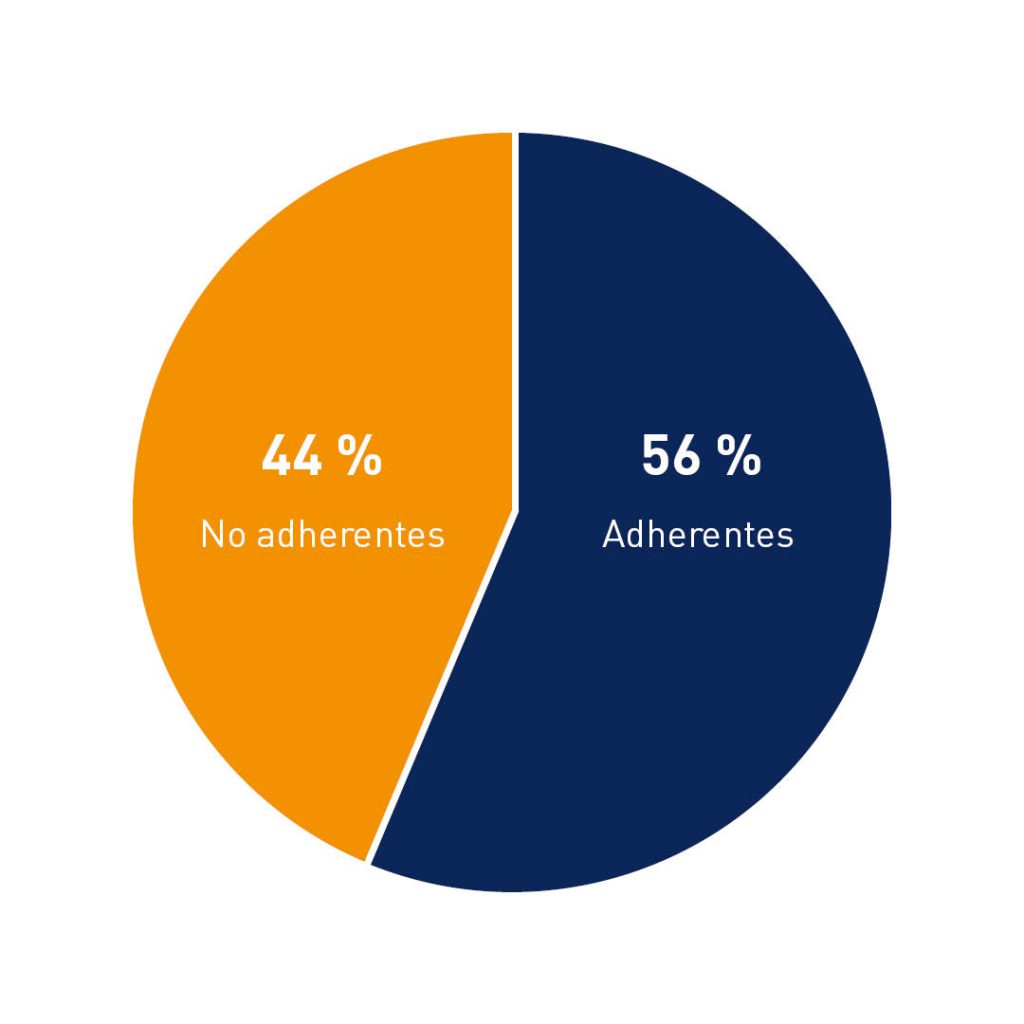Did you know that adherence to treatment is associated with a 20% reduction in the risk of cardiovascular disease?
Cardiovascular diseases (CVDs) are the number-one cause of morbidity and mortality in the world today. The WHO put the number of people dying from CVDs in 2015 at 17.7 million, or 31% of total deaths. It is also estimated that deaths from CVD will reach 23.6 million by 2030.
Although CVD mortality is falling across most European countries, there has been a rise in chronicity in recent years associated with the aging population.
In this context, lack of treatment adherence is a major community health problem. In Spain, adherence levels in secondary prevention of CVD stand at around 56%, meaning 44% of patients do not adhere to their treatment.


The main reason for people not taking their medication properly is related to lack of information around their disease and prescribed treatments. This makes it important to seek new forms of health education. Other factors impacting adherence include treatment complexity and communication with health personnel.
The most important consequences of lack of adherence in CVDs are:
- High blood pressure.
- Cerebrovascular accident.
- Diabetic retinopathy.
- Diabetic neuropathy.
- Diabetic nephropathy.
Coordinated intervention by health professionals is key to identifying adherence barriers and proposing patient-focused solutions.
Commitment to improving disease progress
Therapeutic adherence refers not only to taking medication but also patient behavior in relation to recommendations from the health professional. Patients must take a proactive approach to managing their diseases and become more autonomous if they are going to improve their therapeutic adherence.
Pharmacists can play a key role in improving therapeutic adherence, providing medication monitoring through a Monitored Dosage System (MDS), and professional support.


Good adherence is associated with a 20% drop cardiovascular disease risk and a 38% reduction in mortality.
Impact of adherence on ECV diseases
A 2015 study was designed to evaluate the impact of therapeutic adherence on cardiovascular diseases in Spain. The results showed that boosting adherence among patients at high cardiovascular risk by 1 percent would prevent over 1,200 deaths and up to 1,100 cardiovascular events, reducing health spending by €11M per year.
If adherence increased by 10 percent, over 8,700 deaths and up to 7,650 cardiovascular events would be prevented, shaving €75M off annual health spending.


